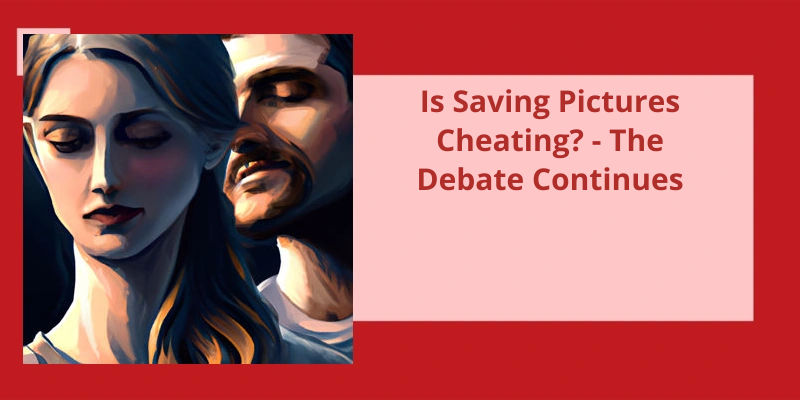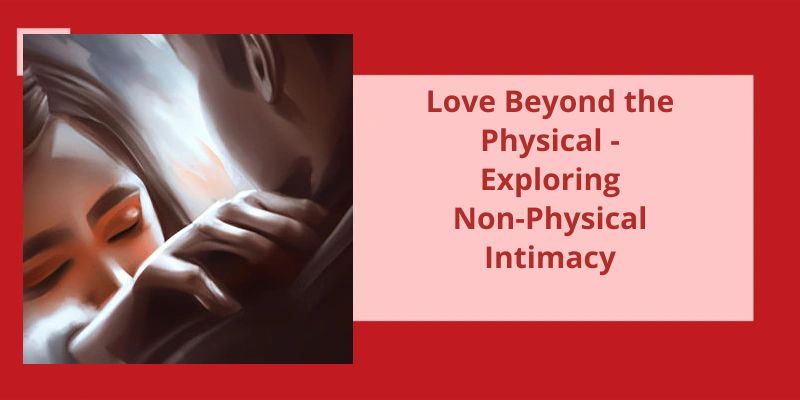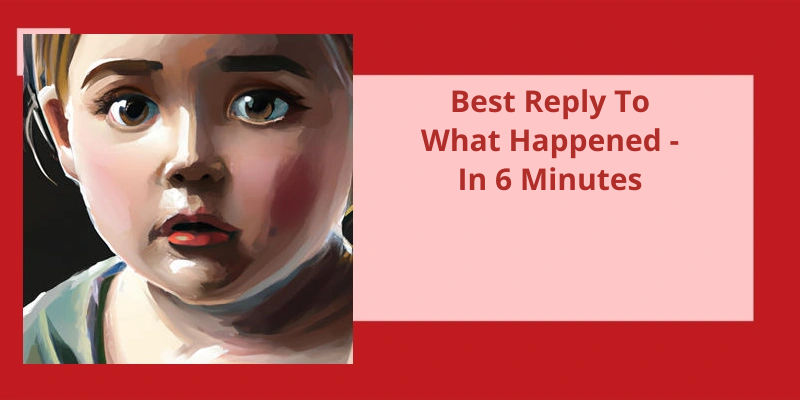As humans, we’re biologically wired to preserve our memories. We try to grasp onto every moment we experience, every emotion we feel, and every person we encounter. One of the most effective ways to create a lasting memory is by taking a photograph. However, over the years, the act of taking pictures has become so frequent that we sometimes wonder if it's cheating on our own memory. Are we relying too heavily on our phones and cameras to capture the moment instead of truly experiencing it? Does taking a photo detract from the value of the moment, or does it enhance it by allowing us to revisit it whenever we please? These are the questions that many of us have been grappling with, and it's time to explore the answers.
Is It Weird to Save Pictures of Other People?
When it comes to saving pictures of other people, there’s really no definitive answer as to whether it’s strange or not. Many people find comfort in holding onto photos of friends and loved ones as a way of cherishing memories and reliving happy moments. Whether it’s a picture of a special event, a favorite vacation spot, or just a casual snap with friends, photos can bring joy and happiness to our lives.
In fact, the act of preserving images of others is a time-honored tradition that stretches back to the dawn of photography. From formal portraits to candid snapshots, people have been documenting the world around them for centuries. And while the rise of digital photography and social media may have altered the way we capture and store images, the impulse to preserve memories remains just as strong as ever.
Of course, there are those who might view the act of saving photos of others as intrusive or disturbing. After all, in an age where privacy concerns abound, it’s easy to see how holding onto pictures of people without their consent could be seen as problematic. However, it’s important to remember that there’s a big difference between capturing a moment in time and using that image for nefarious purposes.
Ultimately, the question of whether it’s weird to save pictures of other people comes down to personal preferences and comfort levels. Some individuals may feel that holding onto images of others is too intimate or invasive, while others might see it as a natural part of human connection. As long as the intent is pure and respectful, there’s no reason to feel ashamed or self-conscious about preserving precious memories.
It’s important to remember that photos are more than just pixels on a screen—they are tangible reminders of the joys, sorrows, triumphs, and tribulations that make up the tapestry of our lives. While the act of saving pictures of others may seem trivial or insignificant, it’s actually a powerful way of honoring the people and experiences that shape us as individuals. So go ahead and treasure those snapshots, share them with loved ones, and let them inspire you to live life to the fullest.
As we dive into the topic of saving Instagram photos, it’s important to clarify the legality of saving pictures from the internet to your personal computer. Many people wonder if it’s legal or not, but the answer is straightforward: it isn’t illegal. However, there are some important factors to consider when it comes to saving others’ photos from social media platforms like Instagram. Read on to learn more.
Is It Legal to Save Instagram Photos?
When it comes to the question of whether saving Instagram photos is legal, the answer isn’t a straightforward one. While Instagram itself allows users to save their own pictures and videos, the platforms terms of use prohibit users from downloading or saving content that belongs to others without their permission.
In most cases, it depends on the context in which the photos are being used.
On the other hand, if youre planning to use the photos for commercial purposes, such as in advertising or marketing campaigns, it’s important to obtain permission from the owner of the photo first. This is because using other peoples content without their express consent can potentially infringe upon their intellectual property rights and result in legal consequences.
The same general rules apply to saving pictures from the internet onto your computer. While there’s no law that specifically prohibits downloading images found online, it’s important to consider the context in which you plan to use the images. In general, using other peoples copyrighted content without permission can be a violation of their intellectual property rights.
One exception to this rule is the concept of fair use, which allows for limited use of copyrighted material without requiring the copyright holders permission. However, determining whether your use of an image is protected under fair use can be complex and depends on a variety of factors, such as the purpose and nature of the use, the amount of the work being used, and the potential impact on the value of the original work.
To avoid any potential legal issues, it’s always best to obtain proper authorization or use images that are in the public domain or licensed under a Creative Commons agreement.
The Legal Implications of Saving Photos From a Private Instagram Account or a Photo That Has Been Deleted From Public View.
- It may be considered a violation of privacy laws if the photos were obtained without the owner’s consent.
- Posting the photos online without permission could lead to legal action for defamation or invasion of privacy.
- The photographer still holds copyright to the photos, which could result in legal action if they’re used without permission.
- If the photos were obtained through hacking or other illegal methods, criminal charges could be brought against the perpetrator.
- Even if the photos were previously posted publicly, downloading or saving them for personal use could still be considered copyright infringement.
As social media becomes more integrated into our daily lives, questions about what constitutes as cheating continue to arise. The act of liking someone else’s pictures, in particular, has become a debated topic amongst couples. While some may not see it as a big deal, others may view it as a breach of trust. In the end, it all comes down to personal boundaries and the dynamics of each relationship.
Is It Cheating if You Like Other Girls Pictures?
Some people may see liking other girls” pictures as harmless, innocent behavior. They may view social media as a platform for sharing pictures and catching up with friends, and therefore may not consider liking a photo as a significant action. However, others may view it as an indication that their partner is seeking validation or attention from others outside of the relationship.
It’s important to communicate with your partner about your boundaries and what you’re comfortable with in regards to social media behavior. It’s natural to feel jealous or insecure, but open and honest communication can help alleviate some of those feelings. Additionally, it’s important to consider why you’re liking someone else’s photos and if it’s fulfilling a need that could be addressed within the relationship.
While liking other girls” pictures may not necessarily be considered cheating, it could be a symptom of other underlying issues within the relationship. It may be important to address any insecurities or lack of communication and work on building a stronger, more trusting relationship.
Ultimately, every relationship is unique and what’s considered cheating may vary. However, it’s important to respect your partner’s feelings and have a clear understanding of what behavior is acceptable within the relationship. Taking steps to communicate and address any issues can help strengthen the relationship and build trust.
In today’s digital age, taking photos and videos has become an intrinsic part of our daily lives. With smartphones taking over traditional cameras, it’s now easier than ever to capture moments and memories in high-quality resolution. However, with the plethora of options available for saving your media, it can be confusing to understand what each option means. One such option is to save to camera roll, which we will look at in detail in this article.
What Does It Mean When Someone Saves to Camera Roll?
When someone saves a photo or video to their camera roll, it means that they’re keeping a copy of that media on their devices storage. This is usually done for easy accessibility and convenience. Saving media to the camera roll makes it easily available for viewing or sharing, even when theres no internet connection available.
Moreover, camera rolls also act as digital photo albums. As people take more photos and videos, their camera roll grows, showcasing memories both old and recent. This collection of photos can be viewed and shared with others, acting as a personal scrapbook that can be with you wherever you go.
With editing tools available on most devices, people can improve the quality of their media, add filters and effects, and crop or resize it to their liking. Since the media is saved on their device, they can take their time with the editing process without worrying about losing the original copy.
It allows for personalization of media, providing users with greater control over the content they keep on their devices. Moreover, it can be a great way to create and preserve personal scrapbooks that showcase important memories for years to come.
Understanding the legalities surrounding the use of copyrighted images can be a daunting task. While it may seem easy to download an image for personal use, it’s important to know when such actions may be considered illegal. The concept of fair use has been put in place to allow for the use of copyrighted material in certain situations, however, there are limitations to this. In this article, we will take a closer look at whether or not it’s legal to download images for personal use, and what factors may come into play when making this decision.
Is It Legal to Download Images for Personal Use?
The question of whether it’s legal to download images for personal use is a complex one that requires an understanding of copyright law. Copyright law grants creators of original works the exclusive right to control how their works are used. This includes images, which are often subject to copyright protection. In general, if an image is copyrighted, you need permission from the copyright owner to use it.
However, there are some exceptions to this rule. One of these is fair use. Fair use is a legal doctrine that allows for the limited use of copyrighted materials without permission from the copyright owner. In the case of images, fair use may allow for their use for educational, personal, or research purposes, or if they’re deemed beneficial to the public.
In general, using an image for personal use is more likely to be considered fair use than using it for commercial purposes. This is because personal use doesn’t have the potential to harm the market for the copyrighted work in the same way that commercial use can. Additionally, using only a small portion of a copyrighted image is more likely to be considered fair use than using the entire image.
If you’re unsure whether your use of an image is legal, it’s important to consult with an attorney with expertise in copyright law.
As social media continues to play a significant role in our personal relationships, it’s important to consider the potential implications of our actions online. One area of controversy is the act of liking old photos, which some argue constitutes a form of “micro-cheating.” While the topic may be subject to debate, it’s worth examining the root of this contentious issue.
Is Liking Photos Micro Cheating?
Some people view the act of liking old photos on social media as a form of micro-cheating. This term refers to small actions or behaviors in a romantic relationship that, although seemingly harmless, can be perceived as a breach of trust or emotional infidelity. While liking an old picture may seem innocuous, it can still send a subtle message to the other person that you’re interested in someone or something from their past.
Trust is the foundation of any healthy relationship, and a small action like liking an old photo can undermine that trust. It can leave your partner feeling like they can’t be open or vulnerable with you, which can create a barrier in communication and intimacy. Therefore, it’s best to avoid liking any photos that are more than a week old and to focus on more meaningful ways to connect with your partner.
If you’re feeling tempted to like an old photo, consider why you’re doing it. Are you genuinely interested in the picture or the memories associated with it? Or are you trying to showcase your connection to the other person or make them jealous? Being honest with yourself about your intentions can help you take the appropriate action in your relationship.
It’s best to avoid this behavior altogether and focus on more meaningful ways to connect with your partner. By being honest with yourself and taking appropriate action, you can maintain a healthy and fulfilling relationship.
The Psychology Behind Why People Like Old Photos on Social Media
Research shows that people like old photos on social media because they evoke memories and emotions from the past. Older photos trigger nostalgia and feelings of warmth and comfort. Additionally, sharing old photos can also serve as a way to connect with others and express one’s personal history and identity.
Conclusion
In conclusion, the ethical implications of saving pictures are complex and nuanced. While some argue that it’s cheating to save images and use them without permission, others believe it’s acceptable as long as it’s done responsibly. Ultimately, the decision to save or not save pictures depends on personal values and the context in which they’re being used. It’s important to consider the impact of our actions on others and to seek permission or give credit when appropriate. By being mindful of our actions and the impact they’ve on others, we can navigate this issue in a way that’s respectful and responsible.






